Latest News
My latest ramblings.
Enjoy! I definitely got important things to say
My latest ramblings.
Enjoy! I definitely got important things to say

“To have our own house is a blessing for us,” affirms Wilmer. A few months ago, he moved with his wife, Brenda, to their new home, which was built by Habitat for Humanity Guatemala volunteers. It was the next step in their relationship after their wedding, and in a way, a continuation of their commitment to one other, a proof of love.
Before, Wilmer and Brenda were living in each of their respective parents’ homes. “We were seven people in my house,” Wilmer says. “I have four siblings. I was sleeping with all of them because we had only two rooms and one kitchen.” As for Brenda, she had been living in a house filled with ten other people. “Neither of us had privacy,” confesses Wilmer. “In the end, it was hard to leave my parent’s house because I always lived there. But I am glad that we moved in together.”

Now, Brenda and Wilmer are living in a house with two bedrooms, one living room, and a kitchen. Wilmer remembers the enthusiasm of the volunteers that came to help them to build their house. The first thing that struck him about them was their eagerness. “They were really kind and helpful,” he says. “We talked together, we sang together during our break. One of them, Kristie was singing La Bamba,” he remembers with a smile. “After the hard work, we took time together to have fun.»
The couple has some plans to continue arranging their house. They want to plant flowers and trees, build a terrace…and hope that in one year, a little baby will be occupying the second bedroom.
Wilmer is contemplative, and remarks that their house “is a blessed place, because we saved some money to have it. It is also a responsibility, to maintain it, to take care of it.”
The couple thanks the group of volunteers for blessing them with their own home. Wilmer has a special message for them: “Keep going, God bless you for your work and your willingness to help your neighbors.»

 Lesbia Antonieta Morales
Lesbia Antonieta MoralesThe atol, a signature holy drink of the Mayas and made from water and corn, is cooling on Lesbia’s new smokeless stove stove. Every morning, Lesbia prepares it as breakfast for her three-year-old daughter, Angelita.
“Before, we didn’t have a stove. Habitat for Humanity Guatemala came to us offering this project. We were interested, so we decided to try it,” explains Lesbia. A few months later, and Lesbia is delighted with the stove. “I love to cook with my new stove, and I can make whatever I want.” Because the stove heats up easily and has a wide surface, she can simultaneously grill her tortillas, prepare beans for lunch, and warm up the breakfast atol for Angelita.
Thanks to the design of the smokeless stove of Habitat for Humanity Guatemala, Lesbia and her daughter no longer affected face issues with smoke fumes. They used to cough and suffer from irritated eyes. Now, Lesbia can cook without any fear that her daughter will have health problems. Moreover, because the stove is low-consuming for firewood, Lesbia doesn’t need to buy as many logs as before. The smokeless stove allows her to save some money and to spend it on other everyday life expenses, especially food.
The water filter has also improved the health of her entire family. Lesbia notes that her family no longer suffers from stomach pains. She also has found that the taste of the water is different, but better.
In addition, the latrine has improved living conditions for Lesbia’s family and is now a cleaner, healthier environment. This is also due in part to the fact that only Lesbia, her husband, and her daughter use it. Before, with the previous latrine, fifteen people were sharing the space. “It was always dirty,” says Lesbia. With a smile Lesbia adds, “we have much more privacy with the new latrine.”

When she is asked about the group that came to help her family, a smile appears on Lesbia’s face. She is proud to say that they built the stove together. “We helped each other. I have nice memories about it.” She concludes, “I am glad that I got to know them.”
Above all, Lesbia is grateful to the group of international volunteers that helped build her stove and latrine. “I thank the volunteers for their support and their work. They helped me to get a new stove, latrine and filter water. They allow us to improve our everyday life.”

“My sister-in-law talked to me about Habitat for Humanity Guatemala’s Healthy Kit Program. I was also interested, so we met the promoter, and we accepted their offer to try it.”
Hilda and her sister-in law live a few meters apart from one another. Fields of corn with amazing views of nearby green valleys surround both of their houses. She remembers perfectly the date of the construction of her stove and her latrine. “January 6th,” she says without any hesitation. It is an indelible memory for her and her family. Hilda’s brothers even came to provide their help and participate in the construction.
Hilda has clear memories of the group, especially with regards to the ways that they communicated. Although she speaks Kiché, Kaqchikel and Spanish, she is not familiar with English. However, the language barrier wasn’t a problem. “We exchanged a lot, thanks to the translator.” She adds. “I am glad we got to know each other.”

Hilda’s daughter, Aracely, sits on a chair and watches pots simmering on the stove with eager eyes. Hilda looks at her with tenderness and explains, “I am grateful, because the Healthy Kit Program improved our living conditions. Thanks to the stove and the water filter, my daughter won’t have any health problems because of smoke or impure water.”
In addition, Hilda mentions, the new latrine has made daily life for her little girl easier. The toilet works well for small children like Aracely.
Hilda now has more time to take care of her daughter. Because the new stove uses less firewood, she doesn’t need to go as often to the forest to find logs. She is glad to have some “extra time” to share moments with Aracely. With a grateful smile, she says: “Thanks to the volunteers, our everyday life is easier.”

Kate Dayana Fuentes y su esposo Luis Enrique Pérez, originario de la Aldea el Jute del municipio de Usumatlán, Zacapa, buscaban una casa para alquilar.

Durante esta búsqueda encontraron a un amigo que vivía en la colonia amway a quien le contaron su necesidad. Él sin dudarlo les conto sobre su experiencia al haber construido su casa con Hábitat, así mismo les refirió a donde dirigirse por información para iniciar el proceso de construcción.
Doña Dayana empezó a reunir todos los documentos que se requerían para acceder a una vivienda, quien con lágrimas nos dijo que desde ese día se imaginó viviendo en una de las casas de la colonia. Ella recuerda que siempre iba de visita a la colonia y pensaba “por aquí va estar nuestra casa”, sorpresa fue cuando les confirmaron la casa, ya que era el mismo lugar donde ella se paseaba y se ponía a orar.
El apoyo de su familia no se hizo esperar, todos comentan que es la mejor decisión que han tomado, tener casa propia, la seguridad de un hogar.Nos comparte que sus padres y hermanos se han involucrado en sus tiempos libres, apoyándola en la construcción.
“Es emocionante saber que se está pagando algo propio y a cuotas accesibles, es un proyecto que vale la pena”.
Por eso anima a las personas que se atrevan a tomar la decisión de tener un hogar estable y sobre todo propio para su familia.
Ahora disfrutará de un espacio más amplio y propio, Dayana y su esposo han cumplido su sueño y ahora su hijo podrá crecer en un ambiente seguro y saludable.
Ser voluntario va más allá de realizar una acción, son manos solidarias dispuestas para dar amor y listas para servir a la comunidad y por supuesto para transformar las condiciones de vida de los más necesitados.
Por eso reunimos fuerzas con empresas comprometidas a dar lo mejor de sí a nuestro país, porque entienden la importancia de participar y empeñarse en hacer la diferencia a favor de quien lo necesita.
Estamos conscientes que necesitamos a más personas interesadas en trabajar en acciones que despierten responsabilidad social y ayuda comunitaria.
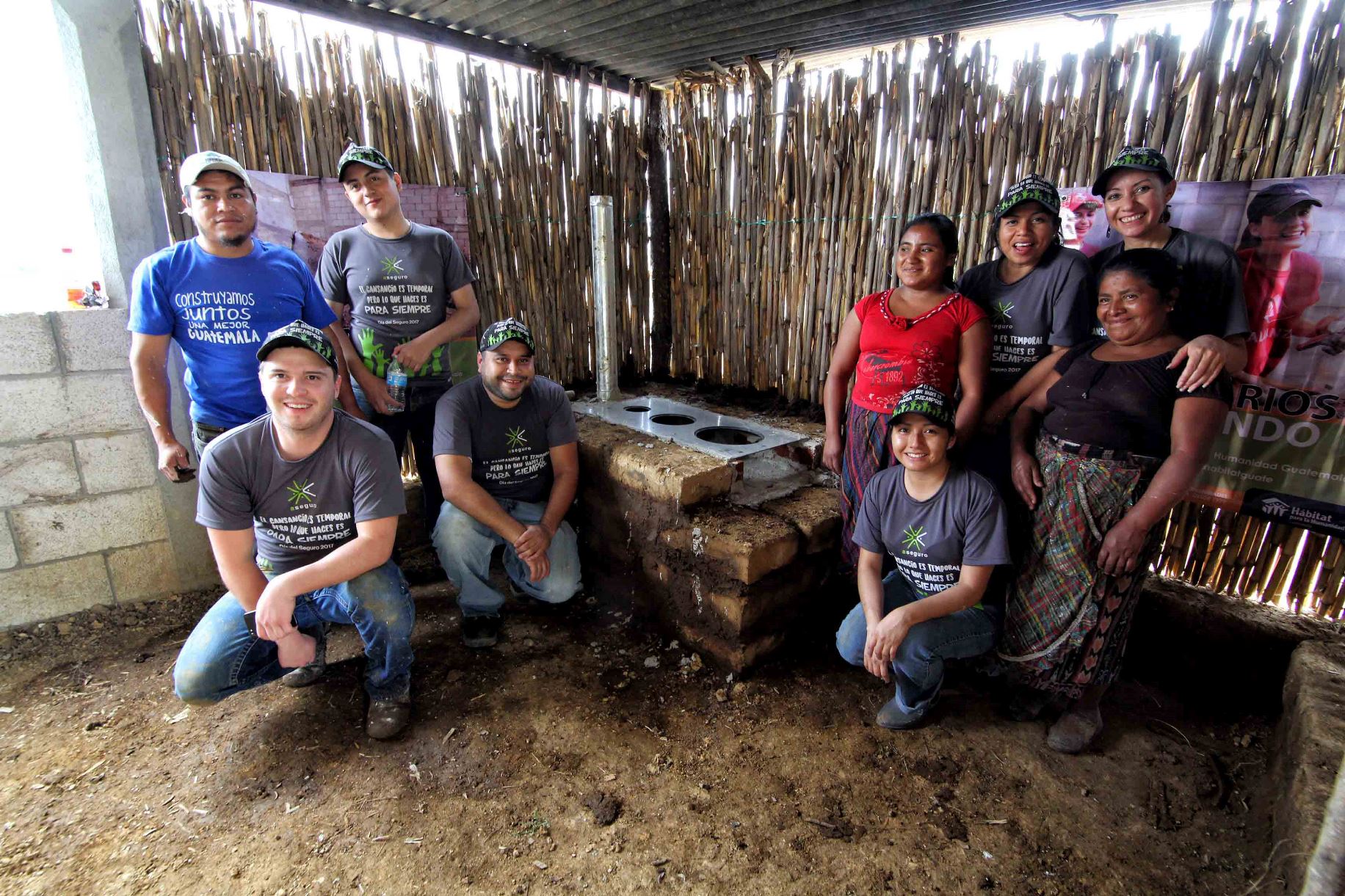
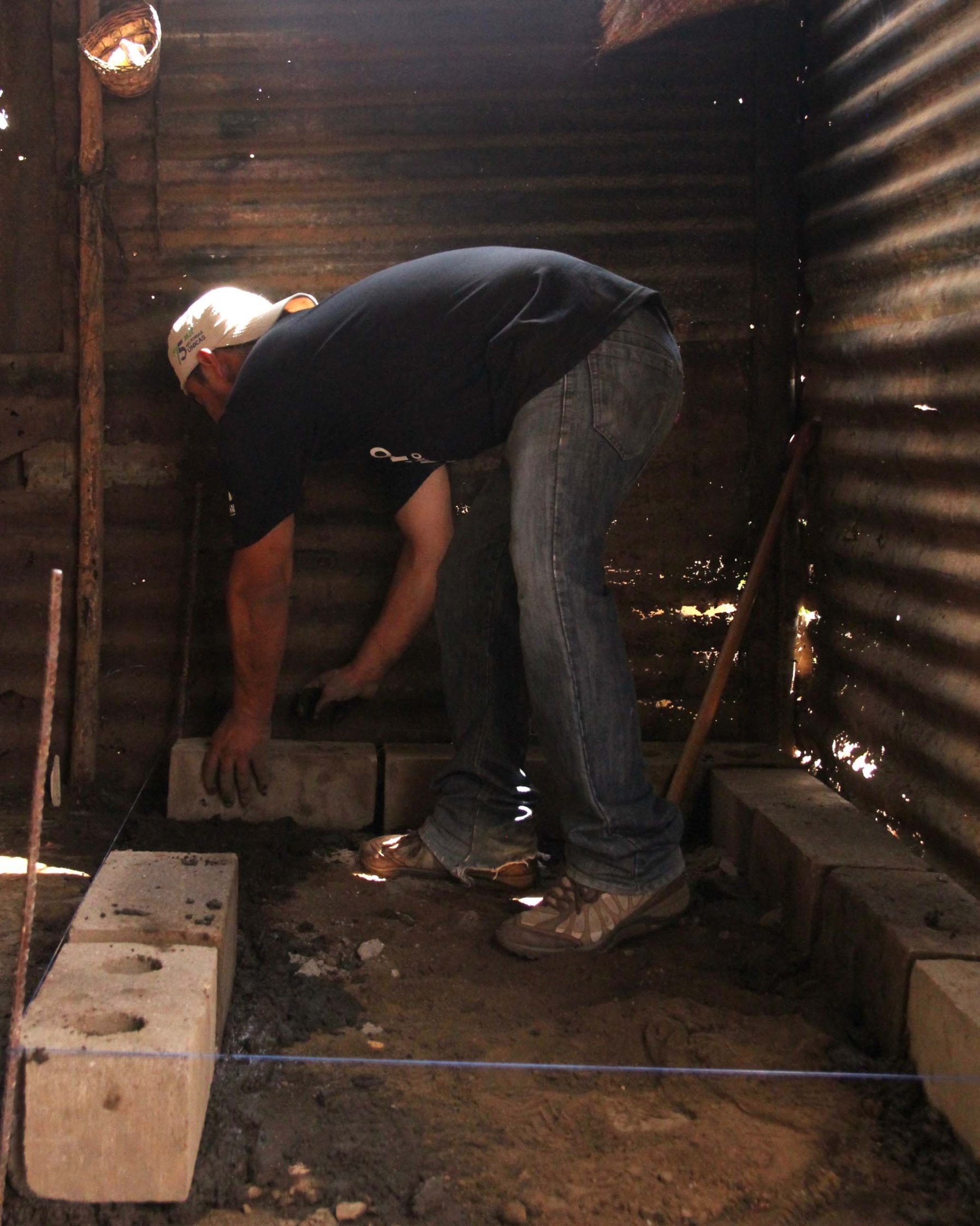
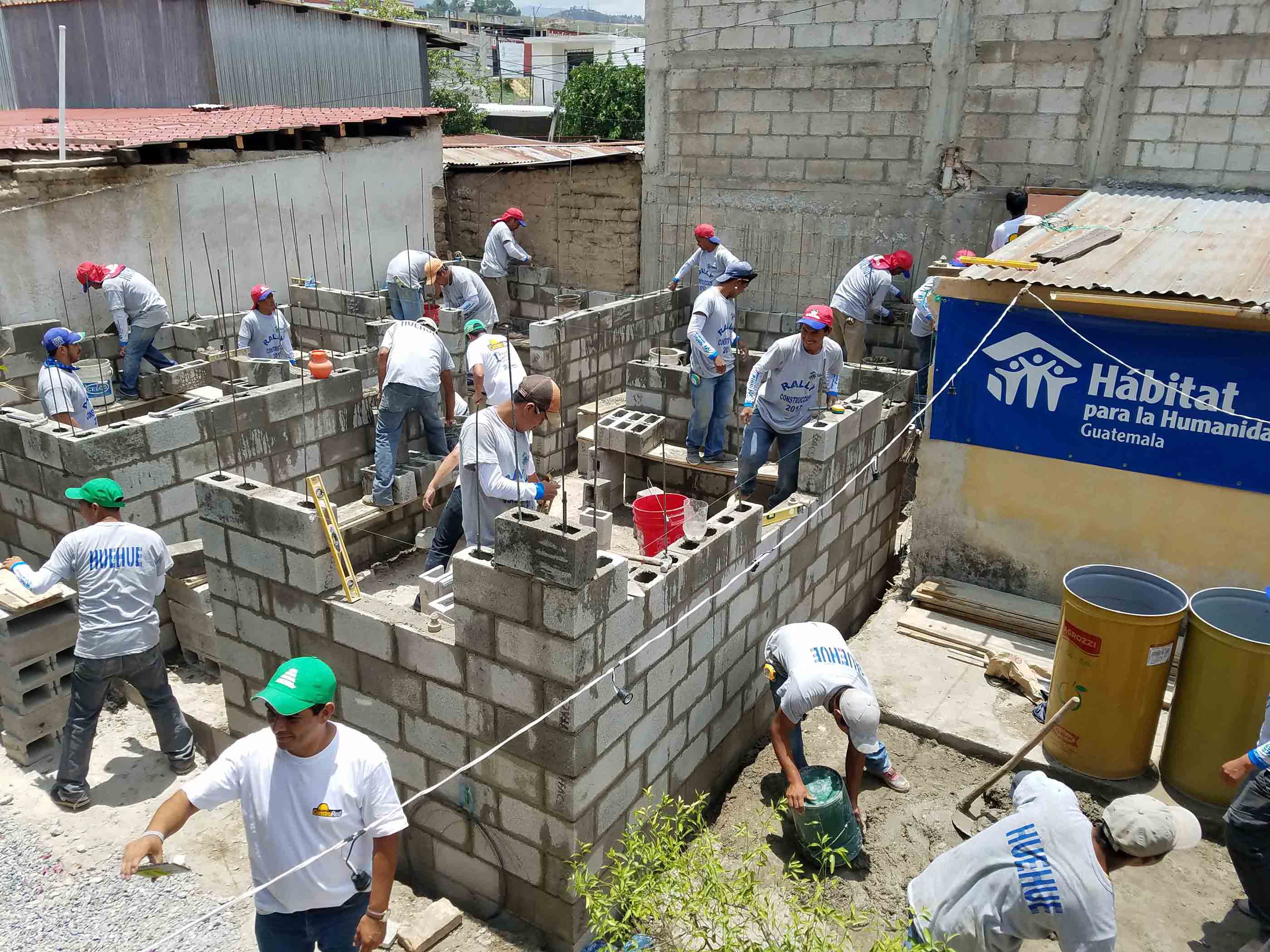
El pasado 12 de mayo se llevó a cabo el 1°. Rally de construcción en el departamento de Huehuetenango, culminando a las 20:00 horas y 5 minutos de trabajo, en el que participaron nuestros amigos de Construred y colaboradores de la oficina departamental.
Nos llena de satisfacción llevar esperanza a cada familia guatemalteca que necesita una vivienda adecuada, construyendo su sueño en 24 horas, acelerando los procesos de construcción y reduciendo el tiempo en que una familia podrá recibir su nuevo hogar.
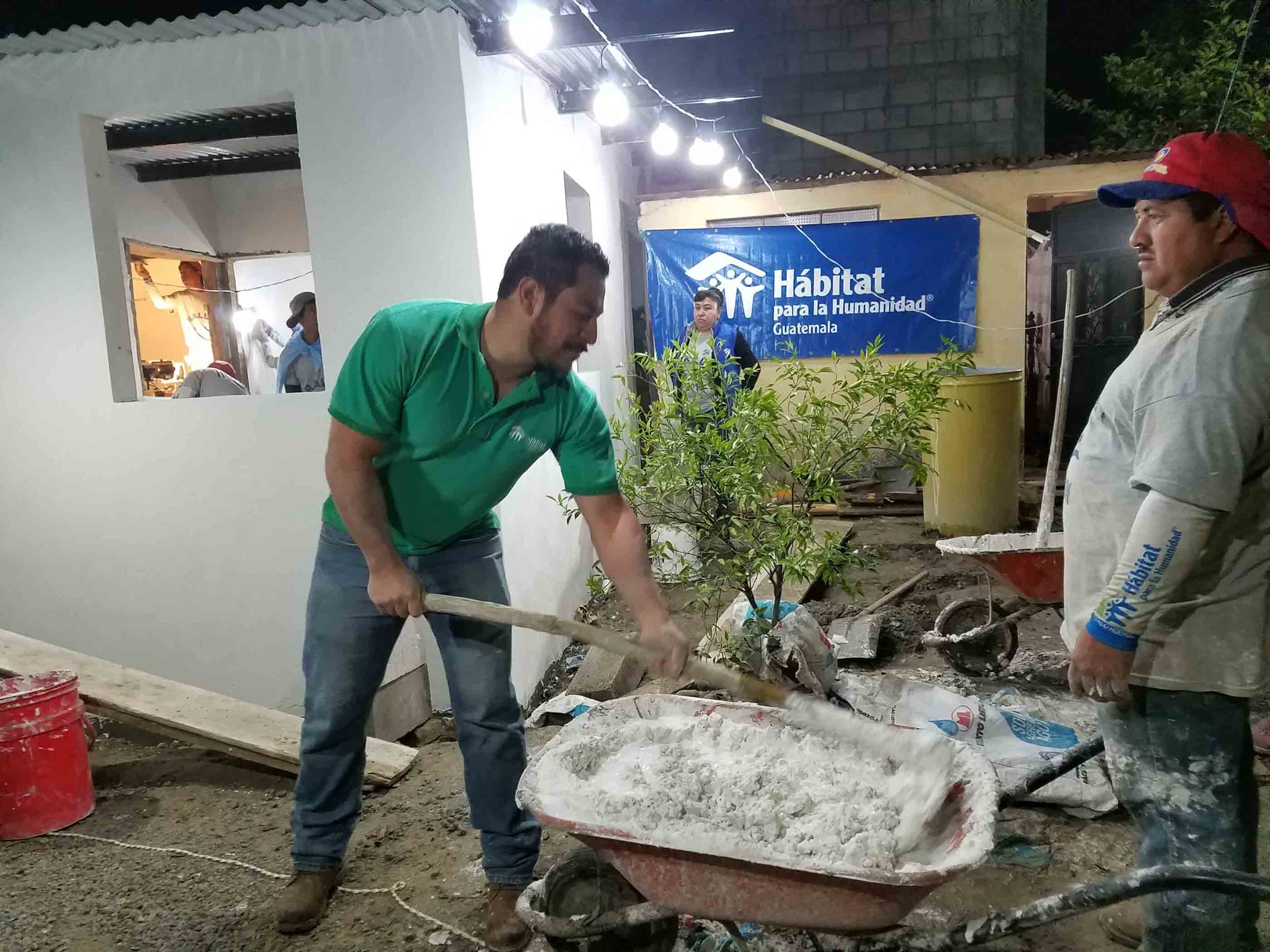
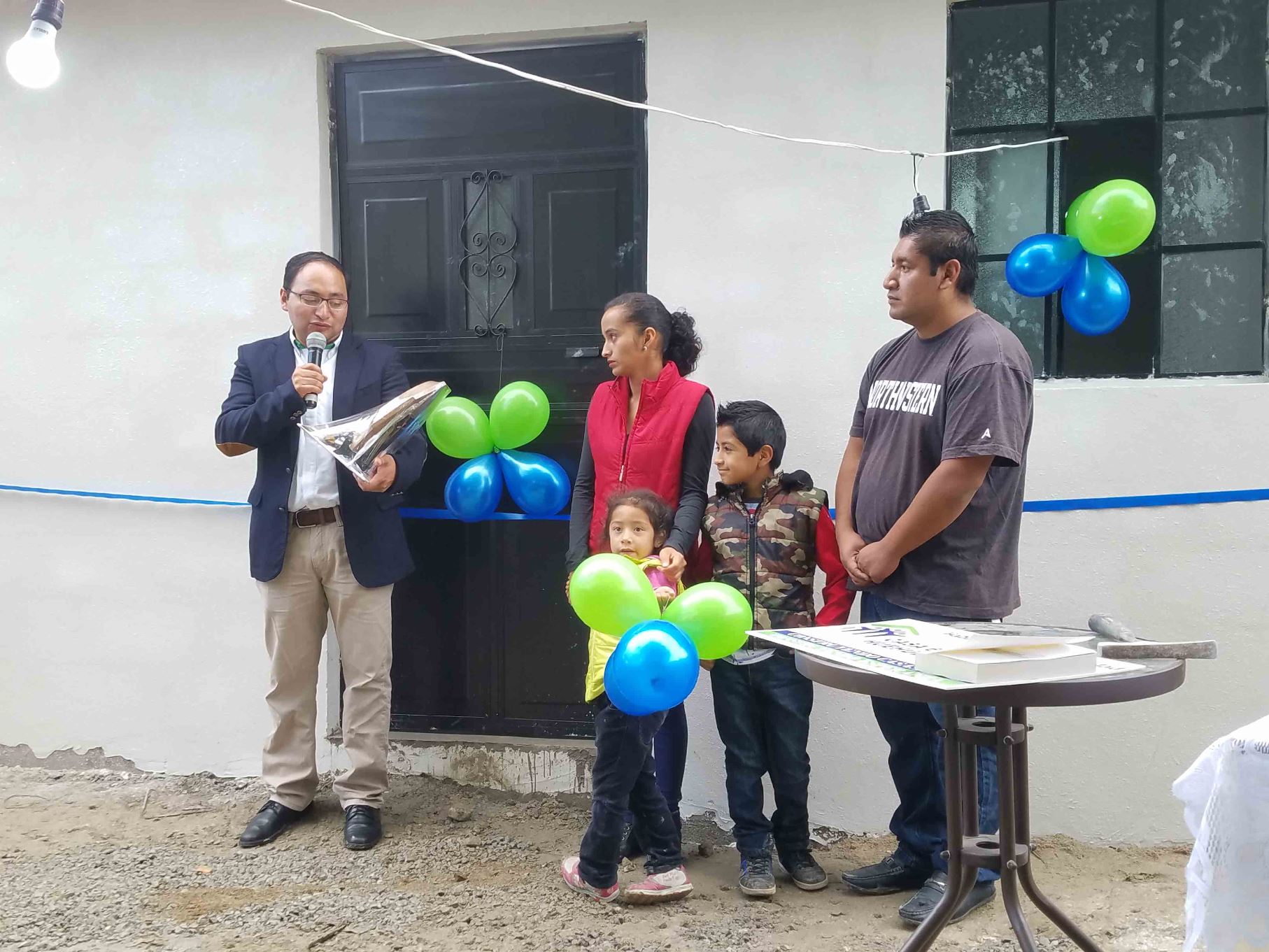
Contactanos: www.habitatguate.org/contactenos/

On June 19, 2017, Habitat for Humanity Guatemala staff gathered from around the country to talk about their commitment to Habitat for Humanity’s newest global advocacy campaign: Solid Ground.
Solid Ground was created by Habitat for Humanity International and thirty countries to address a fundamental issue that exists across the globe: access to land for shelter. Most people around the world have no rights to land on which they live due to pre-established rules and regulations, and currently this is a reality affecting a large segment of the population in Guatemala, particularly women and underprivileged minorities.
Today in Guatemala, there is a housing deficit of over 1.6 million homes (of which need to be improved or constructed), and it is estimated that this number will increase to 2.1 million homes by 2020. During this national forum, several presenters shared their point of view, and alarming statistics, regarding the causes and effects of the problematic housing situation in Guatemala. Earthquakes, tropical storms, political turmoil, extreme poverty, difficulty to tenure land, and legal and financial aspects all play a role in this large deficit. In addition, 67.8% of the population works in the informal sector. This means that the average monthly income of 2,158 Quetzales ($294 US) is not enough to provide a family with the bare minimum essentials, which has a cost of 4,171 Quetzales ($568 US). Consequently, Guatemalans are affected socially by troubles with emotional development, lack of a sense of security, health issues, among many other effects that prohibit individuals from living a healthy lifestyle.

It is this realization that has compelled Habitat Guatemala to advocate the Social Ground campaign. Habitat Guatemala believes that by changing land policy and systems, more Guatemalan families will have access to an adequate home. This solution can be achieved by motivating policymakers to enact and implement protocols and systems that advance access to land for shelter. The team at Habitat Guatemala has already begun mobilizing new and existing allies by contacting 11 different municipalities across the nation, with the hope of working together to decrease the housing deficit.
The forum ended with a visit from two members of the local government: Mayor of Salcajá, Rolando Miguel Ovalle Barrios and Architect Dálida Ively Ramírez de León. They presented the results achieved by approving the second Territorial Ordinance Plan in the entire country. They believe that by implementing such a plan, there is a positive effect on social housing and a possibility to decrease the housing deficit.
As Habitat Guatemala continues its work with the Solid Ground campaign, it is our desire that our partners and supporters are excited about the movement as well. If you would like more information about how you can get involved with Solid Ground, please contact Steven Cook at donor@habitatguate.org.

atención al cliente
QUETZALTENANGO
18 avenida 5-13 zona 3.
7736-8264 / 7763-7524 / 4740-6832
atención al cliente
GUATEMALA (REGIÓN GUATE-CENTRO)
3 Av. 8-26, Zona 10. Guatemala
23392223
atencionfamilias@habitatguate.org
© 2020 Habitat para la Humanidad ® Guatemala. | Desarrollado por iGuate.com

